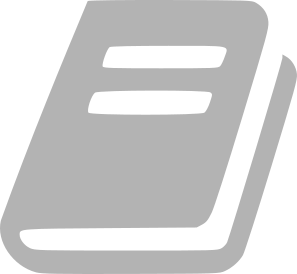… Philosophers have only interpreted the world in various ways ;
the point is to change it …
A close reading of Theses on Feuerbach and On the Jewish Question
Before he wrote the Communist Manifesto with Friedrich Engels, before he wrote Capital, Marx was busy finding his philosophical and political footing. Initially, he was inspired by a group called the Young Hegelians, who were both indebted to and deeply critical of Hegel’s philosophy. Marx appreciated the group’s criticisms of Hegel, but he soon came to realise that their critique did not go far enough. In the early 1840s, he took aim at the Young Hegelians in a series of articles and manuscripts. Especially significant were his Theses on Feuerbach, a terse dismissal of the Young Hegelian Ludwig Feuerbach, and On the Jewish Question, a polemic targeting Bruno Bauer. But these were not just critiques of his philosophical fellow-travellers. These texts represent Marx’s initial attempts to form his own unique philosophy of history, economics and politics, which came to be known as historical materialism. Many key Marxian concepts and theories emerge in these texts in embryonic form. These text deserve a close reading not just for their seminar role in Marxian thought, but for their philosophical and political relevance in a world still dominated by global capitalism.
How this course works
The participants can initiate their entry into the texts on their own, prior to the Crash Course, but the programme will start with the basics, with a presentation of the historical and philosophical background of Marx, before undertaking a close reading of the texts in the sessions. This course, like all programmes at IST, is designed in view of dynamic exchanges between the instructor and the participants ; therefore interjections, questions, comments and alternative interpretations are invited and encouraged throughout the session, while an interactive time is kept specifically at the end of each study session.
Crash Course
Duration : 2 sessions of 180 minutes
Dates and Times : decided with the participants
Instructor : Thomas Crowley
Modality : Skype Videoconference
Open to : All · No pre-requisites
At IST, a new edition of each course is organised upon 3 confirmed participants
TEXTS COVERED

On the Jewish Question
1843

Theses on Feuerbach
1845
TIMELINE
Session 1
Introduction : Marx’s turbulent life & times
Textual Analyses and Discussion on :
Theses on Feuerbach
Session 2
Textual Analyses and Discussion on :
On the Jewish Question
Conclusion : the Relevance and Lingering Questions of the texts
YOUR INSTRUCTOR

Thomas Crowley
Instructor
Experience with the Text of this Course : 10 years +
I first read Marx in 2003, as a first-year philosophy student racing through the Western canon. It made little impression on me – so little, that I cannot now remember exactly what texts we read, though Theses on Feuerbach was definitely there. When I returned to Marx again in 2010, much had changed – the global financial crisis of 2008 had sent many back to Marx, my own political engagement had deepened, Marx had been voted the greatest philosopher of all time in a BBC poll (!). Over the past several years, my reading of Marx has focused on his later texts, especially the three volumes of Capital, but a recent foray into his earlier works has been extremely instructive. Here one finds Marx, young, combative, exiled from country to country, deeply engaged in philosophical debates, developing the philosophical system that would be the foundation for his later works. Grappling with these early texts can give us tools, not just for understanding the current world system, but for building a world beyond it.
Thomas Crowley is a researcher and writer currently based in New York.
Discover his courses here.
PARTICIPATION
CONTRIBUTION
The financial contribution is open
beyond a minimum amount of
15.00 $
or the equivalent in your local currency
Check the conversion rates here
2 Interactive sessions of Textual Analysis
6 Hours of collective study
Reading Material in soft copy
Instructor’s Notes for each session
HD Audio Recordings of the sessions
PRE-REGISTRATION
A new edition of this course will be organised
upon 3 confirmed registrations

